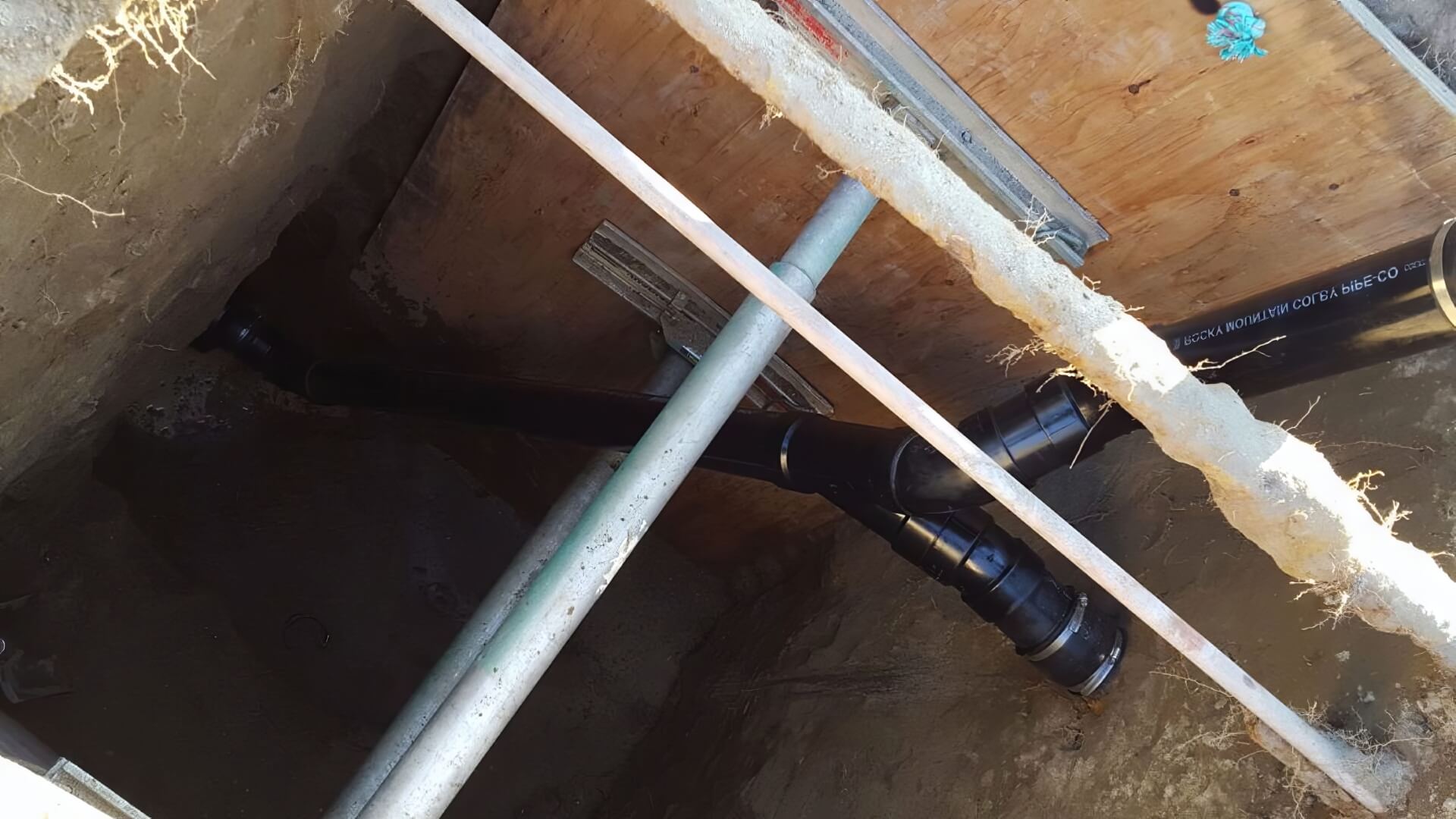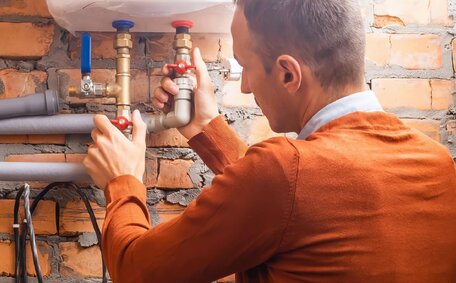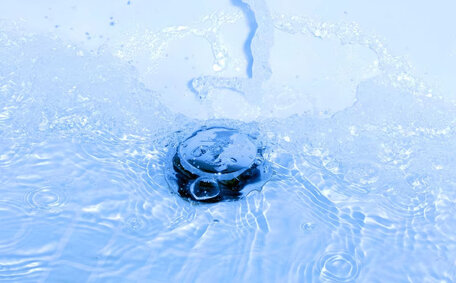Understanding Common Causes of Gas Leaks
Several factors contribute to gas leaks at home and in business settings:
- Faulty appliances are a predominant cause of gas leaks, underscoring the importance of familiarising oneself with their operation to mitigate risks associated with wear or improper placement.
- Deteriorated gas line - A Gas line running under or into your house can corrode or be damaged, causing dangerous leaks.
- Lack of maintenance - Failure to regularly inspect gas appliances and pipelines can allow undetected leaks to occur.
- Improper installations - Incorrect installation of gas pipes or appliances accounts for many leaks.
To prevent gas-related incidents, it’s vital that individuals and companies understand these common triggers and know how to respond to natural gas leaks with timely maintenance and repairs. Proactively preventing gas leaks and swiftly addressing issues are critical steps to avert potential dangers like explosions and carbon monoxide poisoning.
Faulty Appliances and Equipment
Knowing how to handle gas leaks is essential, given that malfunctioning appliances like water heaters and stoves are potential sources in both homes and businesses. Over time, components can break down, which can lead to regular wear and tear, incorrectly installed parts can fail, or lack of maintenance can cause issues where a gas leak can occur.
Recognising early signs is essential for detecting gas leaks from appliance malfunction; ensure your installations are professional with regular inspections by licenced technicians. Regular maintenance by licensed technicians, involving checks and repairs when needed, prevents significant leaks and ensures system integrity. Technicians taking the proper steps can assist in stopping gas accumulation near your gas meter, which could lead to leaks your ventilation systems might otherwise miss, by guiding you to make sure your ventilation requirements around appliances are adequate.
It’s important for home and business owners to be aware of the signs gas leak presents, Especially those related to malfunctioning gas equipment, which could leak into your surroundings:
- Visible corrosion or damage
- Abnormal sounds or functioning
- An unusual smell gas aroma around the unit
- Energy bills that are more than the usual amount
Swift action in detecting appliance leaks is critical to prevent catastrophes, and understanding gas leak preemption is essential for avoiding explosions and carbon monoxide poisoning. Adopting preventative maintenance plans and consulting experts like Ryde Plumbing for appliance concerns can secure your home against gas leaks.
Leaks in Pipes and Fittings
Preventative measures can mitigate the common issues with pipes and fittings that carry gas, often a source of leaks. It is critical to periodically inspect for leaks in areas where pipes may have corroded, developed small cracks, or become damaged. Potential causes of gas leaks include:
- Corrosion from moisture or chemical exposure
- Cracks and gaps in pipe joints or seals
- Accidental damage from digging or construction
- Age-related wear and tear
Understanding the proactive measures one can take to avert complications with components such as valves, elbows, and tees is crucial, ensuring that gas leakages are proactively halted before they occur. Flexible gas lines, which can be verified for integrity using a simple spray bottle with soapy water, are prone to kinks, blockages, or detaching from fittings. Gas leaks can go undetected without regular professional inspections of pipes and fittings.
Specialised plumbers employ sophisticated leak detection technology to identify leaks and certify the safety of your gas system’s connections. They can perform repairs or replace vulnerable sections with robust gas fitting solutions to correct a leak near gas pipes. Seeking professional assistance rather than attempting DIY on gas pipes is advised due to the considerable safety hazards involved.
A hissing sound near gas fixtures is a definitive alarm, prompting immediate adherence to safety measures and professional intervention. Staying on top of maintenance and addressing issues right away is crucial as gas can dangerously accumulate from pipe and fitting issues.
Implementing Preventative Safety Measures
A robust gas detection system with reliable detectors and carbon monoxide alarms enhances the security of your residence by identifying gas leaks effectively. Adhering to the manufacturer’s instructions, including strategic placement and monthly testing of detectors, is an essential safety measure. Here are invaluable guidelines for gas incident prevention:
- Fit detectors near gas equipment and sleeping areas to prevent gas build-up, thereby protecting your dwelling from leaks and possible poisoning. Ensure detectors are mounted near the ceiling to detect gas that rises, being lighter than air.
- Opt to use portable gas detectors for natural gas propane, approved by national emergency authorities and compliant with Australian Standards.
- Examine batteries biannually or replace yearly. Units falsely indicating low batteries need not cause alarm.
- Test alarms using the test button monthly. Units may malfunction over time.
- Replace detectors every 5-7 years or per the manufacture date.
- Have multiple monitors for larger homes, workshops or warehouses.
- Never disregard alarms - evacuate at once, leave your home, seek fresh air, and promptly get in touch with gas emergency services.
Blending attentive and secure use natural resources like gas and carbon monoxide detectors with regular expert assessments forms a foundational prevention strategy homeowners should employ to avert a potential event gas. Technicians can identify and fix potential carbon dioxide and gas leak your home system may have, conducting preventative repairs before serious issues occur.
Conducting Regular Maintenance and Inspections
Conducting thorough inspections and routine maintenance is the most effective way to prevent hazardous gas leaks. Skilled experts at Ryde Plumbing ensure that users of natural gas remain safe; they provide crucial servicing and show necessary steps to prevent a leak home infrastructures might face.
We advise a minimum of annual inspections to ensure your gas lines, appliances and safety mechanisms are fully evaluated. For commercial spaces with extensive or industrially susceptible equipment, biannual inspections are recommended. Maintain thorough records for technicians to compare the system’s condition over time.
During routine checks, technicians will inspect gas lines carefully, conduct thorough leak evaluations, and test alarms, with a focus on ensuring good ventilation while assessing each component attached to your gas systems. They may also:
- Clean appliances and fittings
- Lubricate valves and joints of each gas appliance and can also make sure they operate effectively
- Verify proper ventilation
- Ensure compliance with gas codes
- Conduct combustion analysis
- Ensure well ventilated spaces and confirm correct clearances
When comes to managing gas systems, the first step is to stay calm and engage in preventive maintenance by certified experts, thus ensuring the systems stay in reliable working condition, ready to safeguard against any gas leak scenarios. Households and businesses should know how prevent avoidable risky leaks, gaining peace of mind in their safety assurance.
Being Prepared in Case of a Gas Leak Emergency
During a gas predicament, it’s pivotal to be prepped with the know-how to rapidly deactivate your main gas supply valve. In a case emergency, it’s vital to be well-versed in how to disable the gas supply and follow these strategic steps:
- If you can smell gas or believe there’s a gas leakage, it’s critical to shut off the gas, leave area promptly, and seek fresh air. Alert those nearby to exit swiftly, and once safely outside, adhere to the safety procedures by immediately making a call gas emergency services.
- Shut off your gas sources and avoid any flames, sparks, electrical switches/appliances or other ignition sources that could cause an explosion.
- Should safety permit, act swiftly and engage with your supplier to have the gas turned off at your meter, safeguarding your residence from escalating dangers.
- If the leak is an immediate danger, call emergency services (e.g., 000 for Fire and Rescue) from a safe location. For less severe leaks, quickly get professional assistance by calling your gas provider’s emergency line or a certified gas fitter like Ryde Plumbing.
- Do not re-enter the property until emergency crews indicate it is safe to return.
It’s vital for employees to be familiar with proactive gas leak response steps to ensure workplace safety. Teach household members, employees, and coworkers what do when confronted with a gas emergency—instilling knowledge about preventive actions—a strategy that can remarkably elevate safety. Being ready can mitigate risks and ensure a safe evacuation in the event of a gas leak.
Installing Gas Detectors and CO Alarms
Installing gas and carbon monoxide detectors is essential for safety in any home or business that uses natural gas. Choose detectors that are approved for use in Australia and certified to meet Australian Standards, ensuring effective gas monitoring. Fixed gas detectors offer the most reliable monitoring, with battery-powered models providing an economical choice.
Strategically position detectors close to sleeping quarters and areas with gas appliances as per the manufacturer’s recommendation to reduce risks and safeguard family well-being. Wall mounting near the ceiling maximises effectiveness since rising gas accumulates high within a space first. Commercial buildings may require multiple detectors placed at intervals to provide full coverage across larger areas.
After new detector installation, test functionality using built-in test buttons. Replace ageing detectors every 5 years as sensor accuracy declines over time.
Although they do not prevent leaks, gas and carbon monoxide detectors are critical for alerting you to dangerous exposures. Partnering monitors with proactive inspections and maintenance provides comprehensive protection in homes and workplaces relying on natural gas.
Educating Household and Employees
It’s crucial for every household member and employee to know about using your workplace’s natural gas shutoff valve as a component of appropriate safety processes. Frequent education on gas leak risks, prevention, and emergency response empowers residents and staff to contribute towards safety.
Consider regular training sessions that cover essential safety topics your team should be aware of:
- How to recognise signs of a gas leak such as rotten egg smells
- Steps you should do case a gas leak is detected, such as evacuating promptly and contacting emergency services
- Proper operation of gas appliances and detectors
- The gas system emergency shut off valve location
- Exit routes in case evacuation becomes necessary
Reinforcing this information annually ensures it remains top of mind and helps prevent a potential gas leak. Employees handling gas equipment directly should undergo further role-specific training, fostering transparency in gas safety communication.
Improve safety by displaying clear signs with emergency contacts and leak response instructions at access points. Conduct regular drills to verify that everyone comprehends and can enact emergency procedures, including opening all doors and windows when necessary. A well-informed household and workforce is far better prepared to respond quickly, safely minimising dangers should any leak arise.
For guidance on integrating fire alarm systems in your comprehensive gas safety education programmes, reach out to our team at Ryde Plumbing today.






